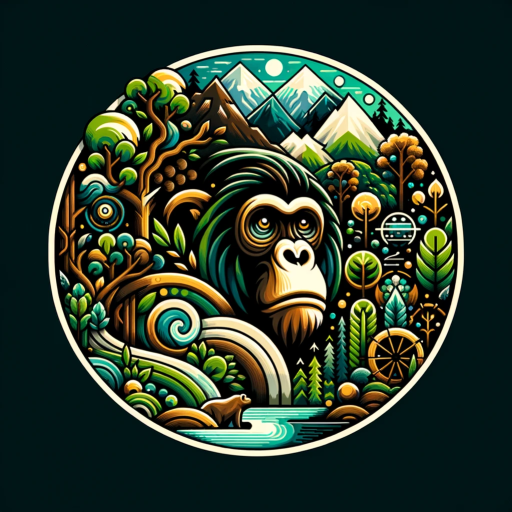# AI-Driven Innovation is Transforming the Music Industry Landscape
The music industry is in a state of ongoing transformation, with artificial intelligence (AI) emerging as a powerful catalyst for change. As the landscape rapidly evolves, AI-driven innovations are fundamentally reshaping how music is produced, promoted, and consumed. This article explores the multifaceted impact of AI on the music industry, examining its benefits while considering the complexities it brings.
## The Rising Tide of AI in Music
As technology continues to advance, the integration of AI within the music industry is becoming increasingly prevalent. From creating melodies to optimizing marketing strategies, AI is influencing almost every facet of the music ecosystem. Here are some key areas where AI is making its mark:
### 1. Music Composition and Production
The ability to leverage AI in music composition is revolutionizing how songs are created. Tools powered by AI can analyze existing compositions and generate new melodies, harmonies, or even entire tracks based on learned patterns. This trend opens up new creative opportunities for artists and producers alike.
– **Enhanced Creativity**: AI can suggest chord progressions, lyrics, and even arrangements, allowing musicians to explore ideas they might not have considered otherwise.
– **Time Efficiency**: DJs and producers can accelerate the production process by utilizing AI to manage repetitive tasks like mixing and mastering.
### 2. Personalized Listening Experience
AI algorithms analyze listener behaviors and preferences to create personalized playlists and recommendations on platforms like Spotify and Apple Music. This level of customization enhances user engagement, driving higher levels of satisfaction and usage.
– **Improved Discovery**: AI enables music fans to discover new artists and genres that align with their unique tastes.
– **User-Centric Playlists**: The use of AI to curate user-specific playlists ensures that every listening experience is tailor-made to keep audiences engaged.
### 3. Marketing and Promotion
AI is transforming the way music is marketed and promoted. With the ability to analyze vast amounts of data, AI tools can help record labels and artists identify their target audiences and advocate for their music more effectively.
– **Data-Driven Insights**: By leveraging analytics, AI can pinpoint demographic details that guide promotional strategies.
– **Automated Campaigns**: AI can optimize marketing campaigns by determining the best times to release tracks and the most effective channels to reach potential listeners.
## The Pros of Integrating AI into Music
The adoption of AI offers numerous benefits that extend beyond just efficiency and cost. Here are some advantages that the music industry stands to gain:
### Creativity Enhancement
AI doesn’t replace creativity; rather, it enhances it. By providing artists with new tools for musical exploration, AI enables them to expand their creative boundaries.
### Increased Accessibility for New Artists
The barriers to entering the music industry are lowering thanks to AI-based platforms that offer affordable production tools and resources. This democratizes music creation, allowing aspiring artists to share their work without needing extensive financial backing.
### Improved Data Analysis for Labels
Record labels now have the ability to scrutinize listener behaviors on an unprecedented level, leading to more informed business decisions and tailored artist development strategies.
## Challenges and Considerations
While the advantages of AI in music are compelling, there are also challenges that must be navigated. The following issues warrant careful consideration:
### Intellectual Property Concerns
The question of who owns the music generated by AI is complex. As AI takes on roles traditionally filled by humans, the boundaries of intellectual property rights are becoming blurred.
### Over-Reliance on Algorithms
There is a concern that an over-reliance on AI could stifle genuine human creativity. If artists depend too heavily on AI for inspiration or composition, it may lead to a homogenization of music.
### Ethical Implications
The use of AI also raises ethical questions, particularly regarding fairness and diversity. Ensuring that AI is used responsibly in promoting artists and influencing music trends is vital to avoid reinforcing existing biases or stereotypes.
## The Future of Music in an AI-Driven Era
As we look towards the future, AI’s role in the music industry is poised to expand even further. Music businesses will need to adapt to these changes proactively, leveraging AI to benefit their operations while maintaining the essential human touch that defines artistry.
### Embracing Collaborative Tools
To ensure a healthy balance between technology and creativity, embracing collaborative tools that combine human insight with AI’s capabilities can lead to innovative outcomes. Artists, producers, and songwriters can work alongside AI to generate music that resonates deeply with audiences.
### Continuous Learning and Adapting
Music industry stakeholders must remain vigilant and adaptable in the face of rapid technological advancements. Staying informed about the latest AI developments will enable them to embrace new opportunities while addressing challenges.
### Building an Inclusive Ecosystem
As AI tools become more integrated into the music landscape, a concerted effort to focus on inclusivity and diversity within these technologies is essential. Encouraging varied perspectives in the development and implementation of AI tools will enrich the music industry as a whole.
## Conclusion
AI is undeniably transforming the music industry landscape, offering exciting new possibilities for creativity, marketing, and discovery. While the challenges are significant, the potential for positive change is equally compelling. By striking a balance between leveraging AI’s capabilities and preserving the intrinsic qualities that make music a deeply human art form, the industry can look forward to a vibrant and inclusive future. As an ever-evolving field, music will continue to adapt and flourish in this AI-driven era, creating opportunities for artists, listeners, and industry professionals alike.
In embracing the innovation of AI, we can create a more dynamic and enriching musical experience that honors both creativity and technology.

